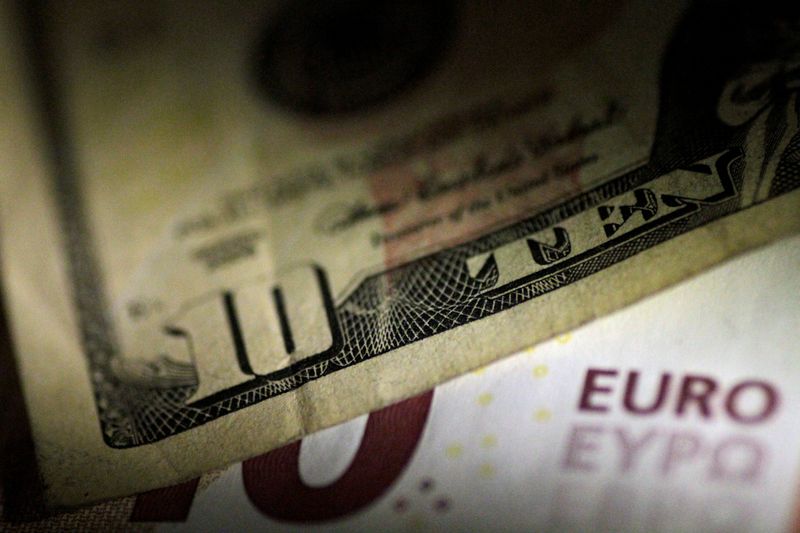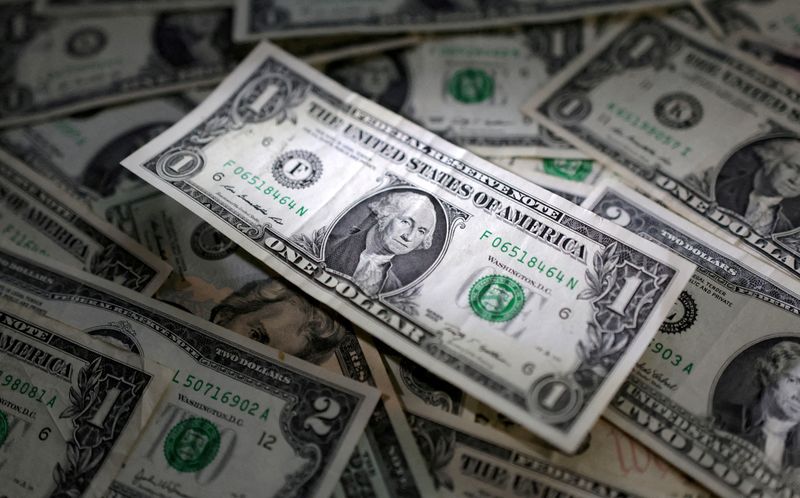By Kevin Buckland
TOKYO (Reuters) - The euro pulled away from near a three-month low to the U.S. dollar on Thursday as attention turned to the European Central Bank's looming rate-setting meeting, after U.S. inflation data failed to alter views for a Federal Reserve pause next week.
The yen strengthened from near a 10-month trough as a decline in long-term Treasury yields removed some support for the U.S. currency.
Australia's dollar rose then retreated then rose again as traders struggled to decide what labour market data meant for the outlook for interest rates.
The U.S. dollar index - which measures the currency against a basket of six developed-market peers, including the euro and yen - edged 0.16% lower to 104.56 in the Asian afternoon.
The euro added 0.21% to $1.07515, continuing its grind higher from last week's low of $1.0686.
The dollar slipped 0.22% to 147.105 yen, falling back from near last week's peak of 147.875.
The benchmark 10-year Treasury yield eased a further 1.3 basis points (bps) to around 4.235% in Thursday trading, extending a 1.6 bps decline from the previous session, when it also at one point surged to a three-week top at 4.352%.
The U.S. consumer price index (CPI) increased by 0.6% last month, the largest gain since June 2022, the Labor Department said on Wednesday. However, core inflation, which is of greater concern to the Fed as it strips out food and energy prices, ran at a 4.3% year-on-year rate in August from 4.7% the previous month.
Traders remain almost certain the Fed will keep rates steady again on Sept. 20, according to money market pricing. Odds for a quarter point increase by year-end though, stand at about 40%.
Meanwhile, wagers for a hike by the ECB later on Thursday stand at about 60% probability currently, from closer to a coin toss earlier in the week, bolstered partly by a Reuters report that Europe's central bank expects inflation will stay above 3% next year in its updated forecasts, far exceeding the 2% target.
The Fed's November meeting will be "a pivotal event," with a run-up in crude oil prices adding to the risk of another hike, potentially buoying the dollar, said James Kniveton, a senior corporate foreign-exchange dealer at Convera in Melbourne.
"It is premature to assert that USD bears have assumed control," he said.
At the same time, a hike by the ECB "could potentially catalyse a shift in momentum, relegating the dollar to a secondary position as the euro gains traction," he added.
Meanwhile, the Australian dollar rose as much as 0.54% to the highest since Sept. 5 at $0.64545 after figures showed the economy added a consensus-beating 64,900 jobs in August.

However, 62,100 of those jobs were part-time, and that detail saw a rapid retracement of all of those gains.
But by the Asian afternoon, the currency had grinded higher to be up 0.33% at $0.64425.
